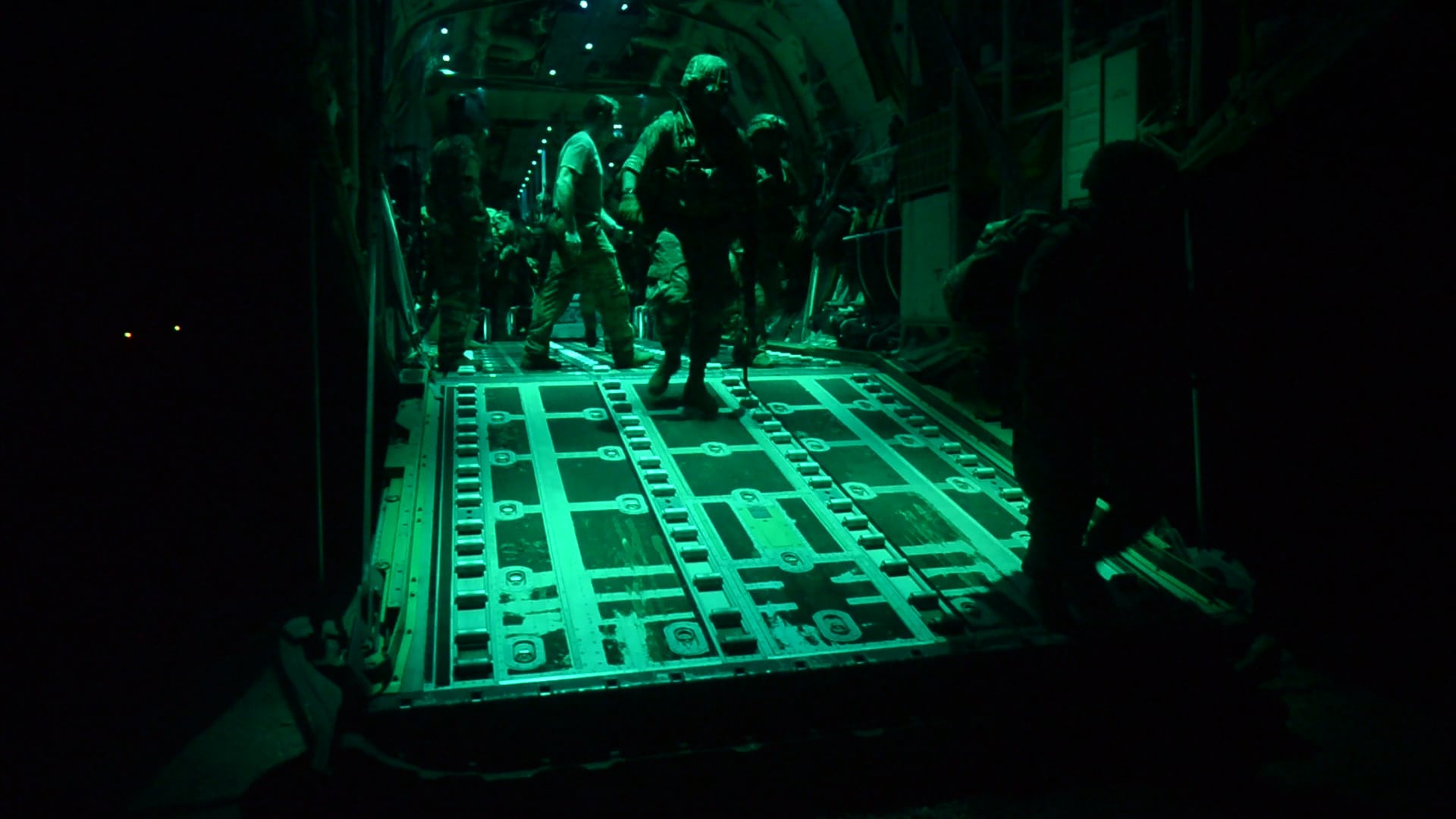Soldiers from the 101st Airborne Division’s 3rd Brigade Combat Team deployed to Manda Bay Airfield, Kenya on Jan. 5, according to Army officials.
The air assault troops were brought in by C-130 cargo aircraft to bolster security after an attack by al-Shabab militants. They were part of the previously announced East Africa Response Force that was dispatched to the facilities after an attack that included mortars and small arms fire, breached the base’s perimeter and damaged six aircraft.
“The 101st Airborne Division Soldiers, currently fulfilling the role as the East Africa Response Force, provide a unique capability to the combatant commander. They offer speed, agility, and security to handle contingency actions. This was demonstrated after the attack in Manda Bay, Kenya,” Army Col. Dave Foley, deputy commander of operations for the 101st, said in an official statement.
The attack began when a U.S. surveillance plane was destroyed while taxiing, the New York Times reported, which sparked the hourslong firefight. Three Americans, one soldier and two Pentagon contractors, were killed in the attack on the seaside base south of the Kenya-Somalia border.
Dustin Harrison, 47, and Bruce Triplett, 64, private pilots flying aircraft for L3 Technologies, died in the initial attack on the aircraft.
While working as an air traffic controller from a truck nearby, Army Spc. Henry Mayfield Jr. was killed in the ensuing gunfight, according to the Times. He was assigned to the 58th Aviation Regiment, based out of Fort Rucker, Alabama.
Mayfield was posthumously awarded the Bronze Star and Purple Heart medals, according to Jimmie E. Cummings, a Fort Rucker spokesman. Army Times has put in a request for the award citations.

About a dozen Marines from 3rd Marine Raider Battalion, based out of Camp Lejeune, North Carolina responded late to the attack from their location at Camp Simba ― roughly one mile from the Manda Bay facilities.
AFRICOM acknowledged Thursday in a press statement that “the enemy achieved a degree of success in its attack," but attempted to push back against news outlets that reported on contingency troops’ slow response time.
“However, despite public reports, an initial assessment indicates that a timely and effective response to the attack reduced the number of casualties and eliminated the potential for further damage,” the command’s press release reads.
The Marines engaged in an intense firefight with the al-Shabab militants, sources told Marine Corps Times, ultimately pushing the Islamic fighters off the base. Al-Shabab, an al-Qaida-affiliated militant group, primarily operates out of Somalia, but has carried out strikes elsewhere in East Africa.
During the battle, many local Kenyan troops assigned to defend the base hid in grass, the Times reported, adding that U.S. service members and other personnel were sent to wait out the attack in tents with little protection.
The attack caught U.S. officials off-guard and highlighted once again the tenuous security situation on the continent for remote and rarely discussed American outposts.
AFRICOM spokesman, Air Force Col. Chris Karns, declined to discuss how the security posture at the base has been adjusted in the wake of the attack, only stating, “We don’t comment on the employment of special operations forces on the continent."
Following the attack, al-Shabab warned African troops that America will abandon them like it did the Syrian Kurds when the fighting gets hard, and nothing will save them from the “wrath of the Mujahideen.”
AFRICOM officials did not comment how long the 101st troops will remain at Manda Bay. The East Africa Response Force provides one company of soldiers always on call to rapidly deploy to protect U.S. citizens and diplomatic facilities, as well as offer humanitarian assistance and disaster relief. The response force is located at Camp Lemonnier, Djibouti, and works for the Combined Joint Task Force-Horn of Africa.
Army Green Berets from Germany were also dispatched to Djibouti after the attack, the Times reported.
AFRICOM stated that five al-Shabab fighters were killed in the battle, while an estimated “several dozen” more were eventually repelled.
“Because of the size of the Kenyan base, clearance and security operations continued for several more hours to ensure the entire base was secure,” the AFRICOM release reads.
Kyle Rempfer was an editor and reporter who has covered combat operations, criminal cases, foreign military assistance and training accidents. Before entering journalism, Kyle served in U.S. Air Force Special Tactics and deployed in 2014 to Paktika Province, Afghanistan, and Baghdad, Iraq.





